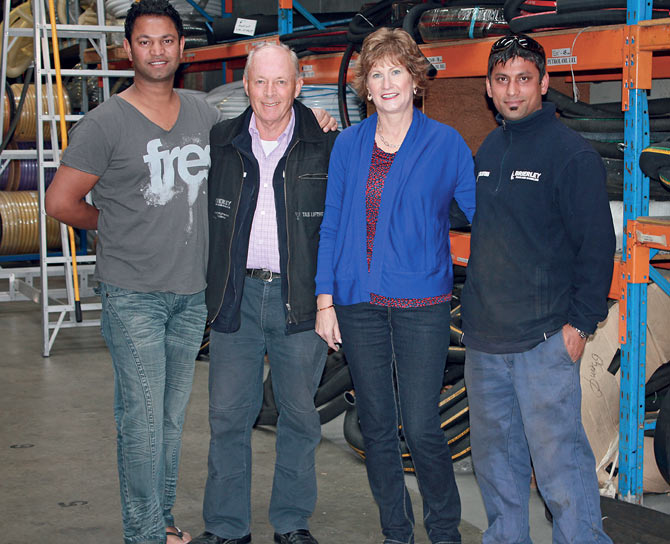
He completed a degree in hospitality as a young man, but began working with his father in the family hosepipe business after graduating. Within seven months, he was adopted by a family in Tasmania, Australia and became Saroo Brierley. The birthday he celebrates is one given to him by the Calcutta authorities they estimated the year, and the month and day are the date that he arrived at the orphanage. He survived for weeks on the streets until he came to the attention of the authorities. When he was five, he mistakenly boarded a train for the city of Calcutta, one of the most dangerous cities in India. They were extremely poor, and Saroo and his siblings were often left home alone for days at a time. His father effectively left the family when Saroo was very young, so Saroo, his brothers, and their mother had to do whatever they could to support the family. He was their third child and was actually born with the name Sheru. Thanks.As Saroo’s memoir explains, he was born in the small central Indian town of Khandwa to a Muslim father and a Hindu mother.
#A long way home saroo brierley pdf free#
Please feel free to use them, online or off, with attribution.

What was your experience reading A Long Way Home? Did you find it one-dimensional, too focused on Saroo's experiences? Or did you find that the story captured the multiple experiences of Saroo and his two families? Was the story engaging, suspenseful, heart-rending? Was there one part of the story you found more interesting than the other: the story of Saroo as a lost child in Kolkata.or the story of his five-year-long search for his birth family. Would this story have had a different outcome absent the internet?ĩ. Discuss Saroo's use of technology to locate his family-Facebook and Google Earth, in particular. What does that suggest about the kind of woman Kamala is and the strength of her optimism and her faith?Ĩ. Is her experience typical of Indian village women? Also, consider her insistence on remaining in the same home in hopes that her son might someday return to her. Talk about Kamala as a single mother and her struggles to keep her family fed. Today there are perhaps a hundred thousand homeless kids in Kolkata, and a good many of them die before they reach adulthood.… No one knows how many Indian children have been trafficked into the sex trade, or slavery, or even for organs, but all these trades are thriving, with too few officials and too many kids.ħ. What are some of the darker aspects of this book surrounding poverty. What were Sue's experiences in her early years? To what degree did her background as a refugee influence her desire to adopt two Indian children?Ħ.

Describe Sue and John Brierley as parents and the kind of family they provided for Saroo and his brother Mantosh. Talk about the genuine kindness of other people Saroo encounters in Kolkata: the ISSA orphanage and Mrs. Why does Saroo run away from the man's seeming kindness?Ĥ. Also, what about the railway worker who took him in for a time. Discuss Saroo's ordeal on the streets of Kolkata.

What role does memory play in shaping our self-identity? What are the memories Saroo has of his early childhood, and how have those memories, many of them traumatized, shaped Saroo's sense of himself? How did Saroo continue to "work" his mind in order to keep his childhood memories alive for 25 years?ģ. 252)? If that is the case, why the drive to find his Indian roots?Ģ. What propels Saroo Brierley as an adult to search for his birth home, especially as he writes, "I am not Indian …and I have family bonds that cannot be broken (p.

We'll add publisher questions if and when they're available by the publisher in the meantime, consider our LitLovers talking points to help start a discussion for A Long Way Home …then take off on your own:ġ.


 0 kommentar(er)
0 kommentar(er)
